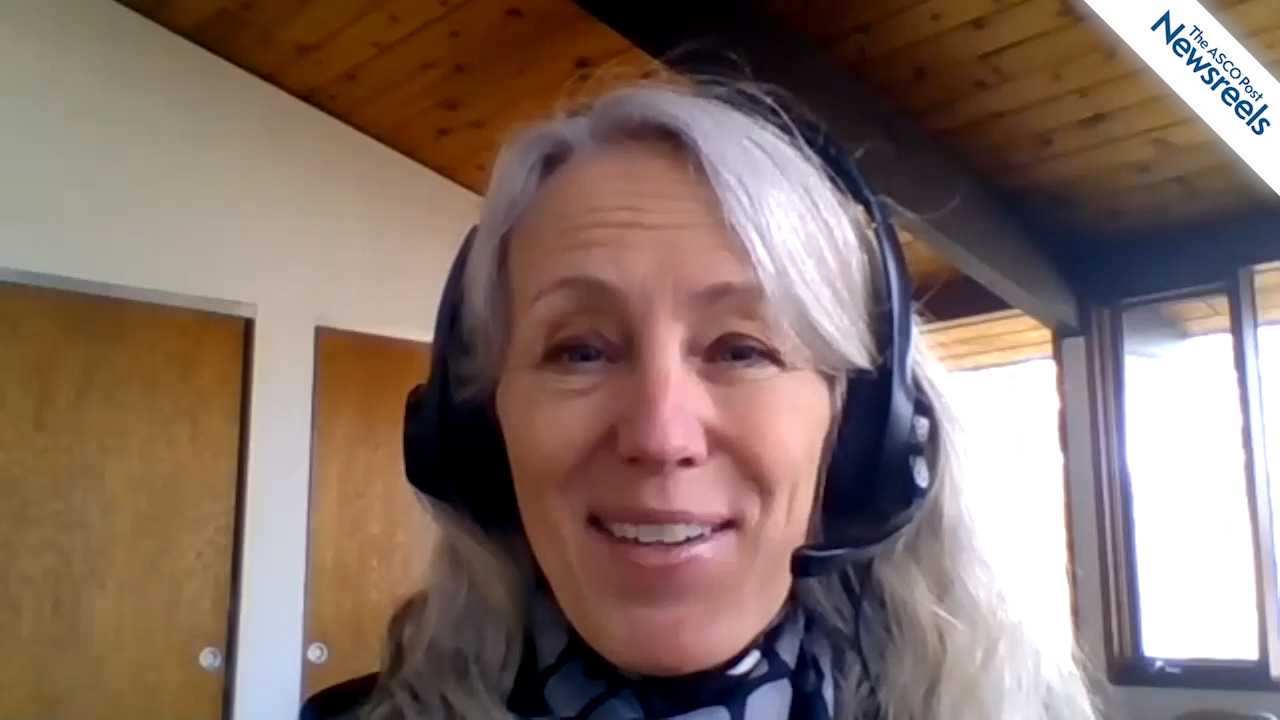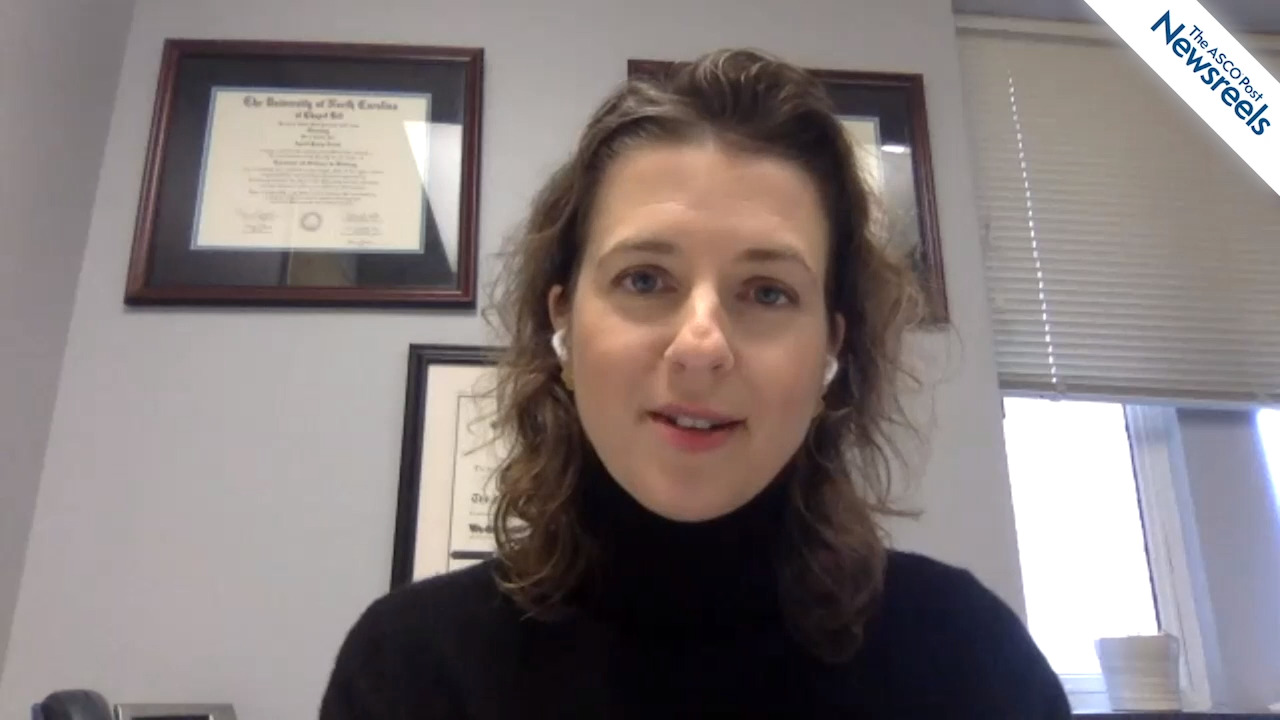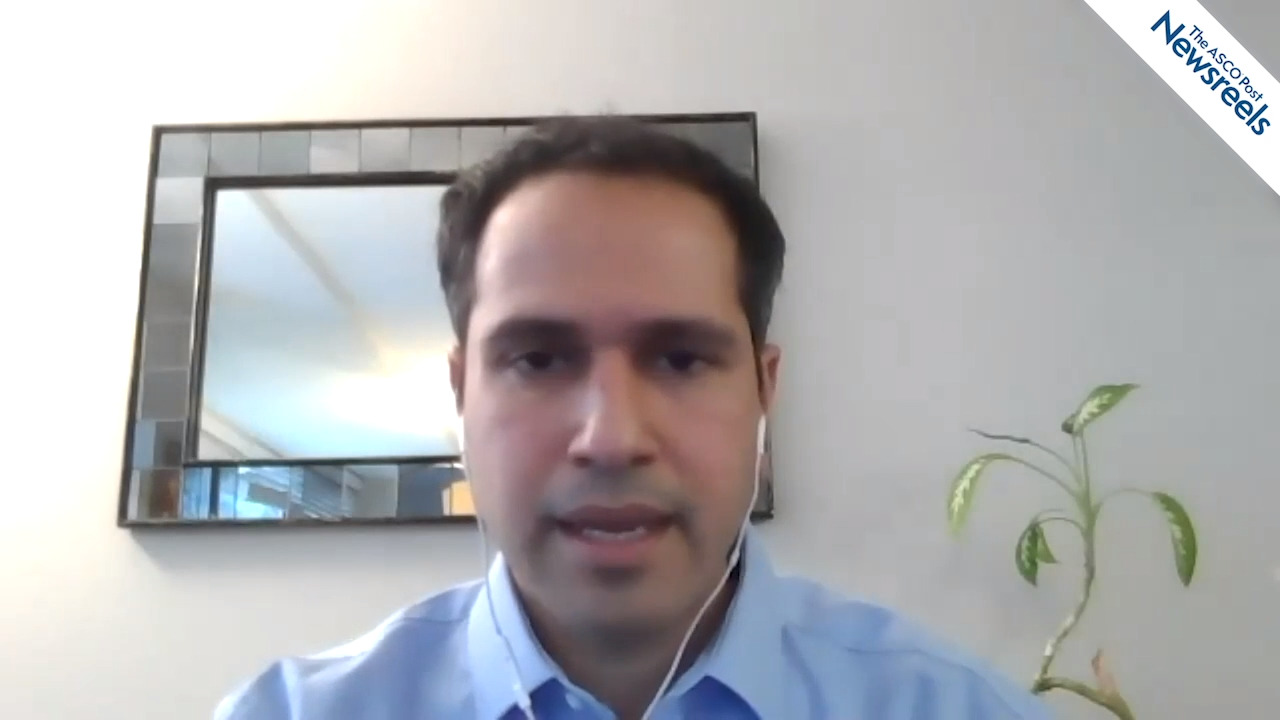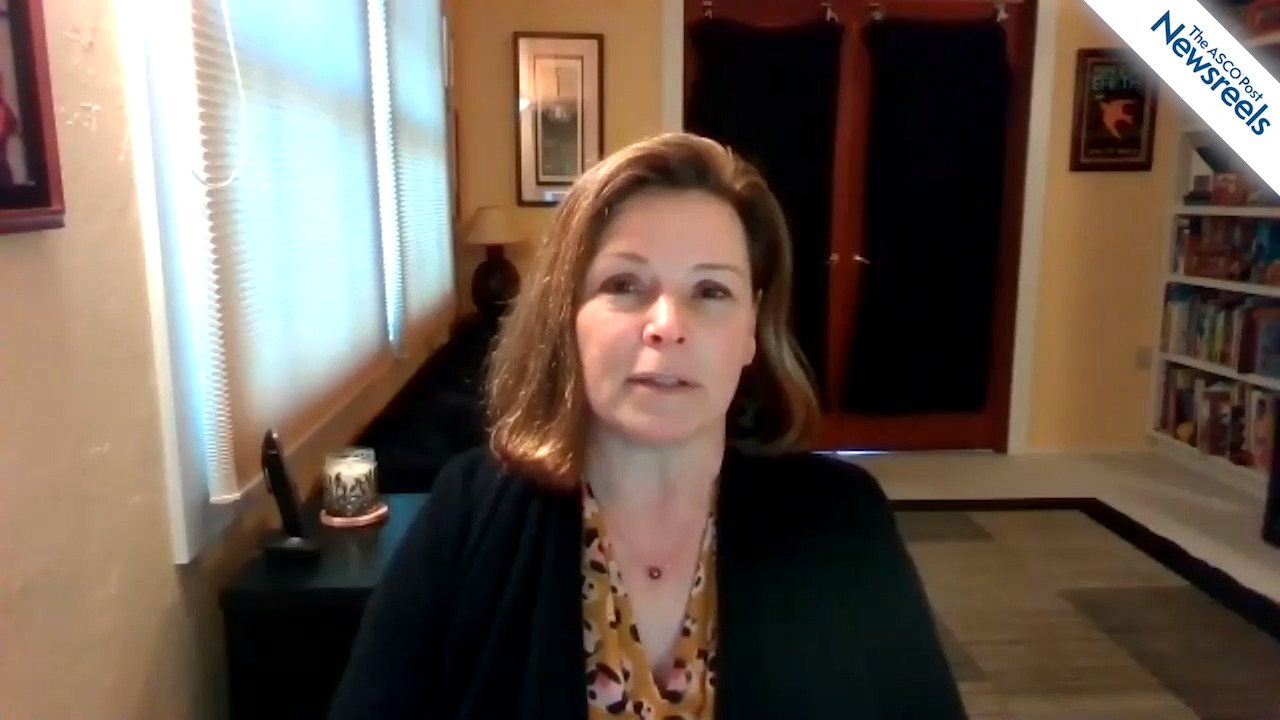Robert Winn, MD, on Strategies for Reducing Racial Disparities in Oncology
NCCN 2021 Virtual Annual Conference
Robert Winn, MD, of the Virginia Commonwealth University Massey Cancer Center, discusses the creation of a health equity report card to track how institutions are dealing with disparities in oncology care, ways to recognize bias in care, and adding health equity experts to guideline panels and other advisory groups.
The ASCO Post Staff
Lori J. Wirth, MD, of Massachusetts General Hospital Cancer Center, discusses the common molecular alterations across thyroid cancer subtypes; targeted treatments for BRAF V600E–mutant, NTRK–fusion positive, and RET–altered disease; and optimal therapies for patients with multiple types of thyroid cancer.
The ASCO Post Staff
April K. Salama, MD, of Duke Cancer Institute, discusses the shift in recent years, as more effective therapies have become available, toward integrating systemic upfront treatment of patients with brain metastases from cutaneous melanoma; pivotal studies that have provided key data; and the need for a multidisciplinary approach incorporating medical, surgical, and radiation oncology.
The ASCO Post Staff
Shivan J. Mehta, MD, MBA, of Abramson Cancer Center at the University of Pennsylvania, discusses how insights from behavioral economics could be harnessed to improve HPV vaccination rates, thus lowering the rate of cervical, genital, and head/neck cancers, all of which are linked to HPV.
The ASCO Post Staff
Susan M. Swetter, MD, of Stanford Cancer Institute, discusses molecular prognostic tests for cutaneous melanoma, which may improve staging accuracy, reduce unnecessary sentinel lymph node biopsies, and inform decisions on surveillance imaging and/or adjuvant therapy.
The ASCO Post Staff
Shaji K. Kumar, MD, of the Mayo Clinic Cancer Center, discusses the latest data on treating patients with multiple myeloma, including standard-of-care induction before stem cell transplant; the role of quadruplet induction; long-term results with the combination of daratumumab, lenalidomide, and dexamethasone in those who are ineligible for stem cell transplant; CAR T-cell engagers; and the need for more research on how immunotherapy fits in the sequence of treatments.





